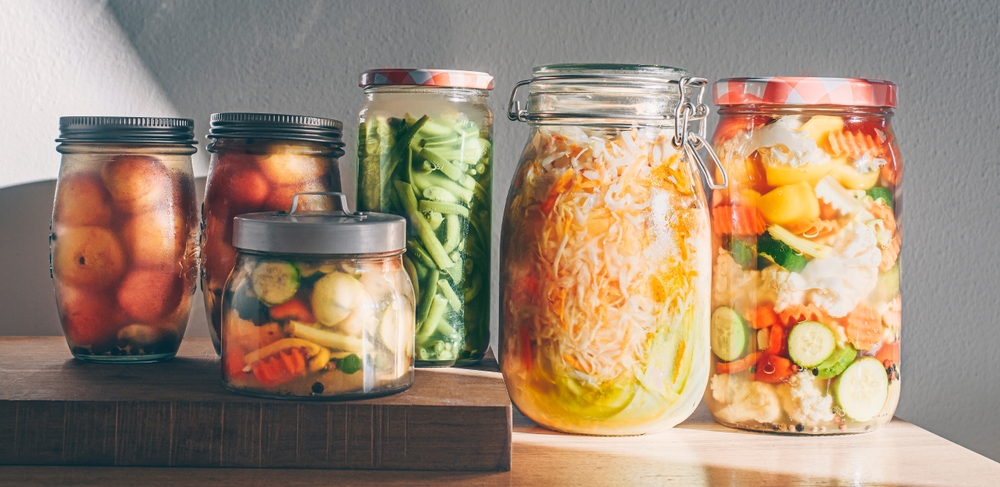Healthy Food Storage Solutions: Maximize Freshness with the Right Containers
Food containers keep meals fresh, organized, and easy to transport, making them essential for both home storage and on-the-go use. Available in various sizes and materials, they help reduce waste, maintain food quality, and simplify meal prep for a more efficient kitchen.

What are the best food containers for fresh storage?
When it comes to keeping your healthy ingredients fresh, choosing the right food containers is crucial. Food containers for fresh storage come in various materials, shapes, and sizes, each with its own benefits. Glass containers are an excellent choice for their durability, transparency, and ability to resist staining and odors. Plastic containers, on the other hand, are lightweight and often more affordable, making them ideal for on-the-go meals.
For optimal freshness, look for containers with airtight seals that can keep out moisture and air, which can lead to spoilage. Some containers also feature compartments or removable dividers, allowing you to separate different ingredients and maintain their individual textures and flavors.
Why choose glass food containers with lids?
Glass food containers with lids have become increasingly popular among health-conscious individuals for several reasons. First and foremost, glass is a non-porous material that doesn’t absorb food odors, flavors, or stains. This means your containers will remain clean and odor-free even after storing strong-smelling foods like garlic or onions.
Additionally, glass containers are microwave-safe, allowing you to reheat your meals directly in the container without worrying about harmful chemicals leaching into your food. Many glass containers are also oven-safe, making them versatile for both storage and cooking. The clear nature of glass also allows you to easily see the contents inside, helping you keep track of your ingredients and leftovers.
How can reusable food containers support a healthy lifestyle?
Reusable food containers are not only environmentally friendly but also play a significant role in supporting a healthy lifestyle. By investing in high-quality, reusable containers, you can:
-
Portion control: Many reusable containers come in specific sizes, making it easier to control your portion sizes and maintain a balanced diet.
-
Meal prep: Having a set of reusable containers allows you to prepare meals in advance, ensuring you always have healthy options on hand.
-
Reduce waste: By using reusable containers instead of disposable ones, you’re reducing plastic waste and contributing to a healthier planet.
-
Save money: Packing your own meals and snacks in reusable containers can help you save money on eating out or buying pre-packaged foods.
-
Encourage variety: With a range of container sizes and types, you can store and transport a variety of healthy foods, from salads and fruits to soups and smoothies.
What are the best food containers for meal prep?
Meal prepping has become a popular strategy for maintaining a healthy diet, and having the right food containers is essential for success. When choosing food containers for meal prep, consider the following features:
-
Compartments: Containers with built-in dividers or separate compartments allow you to keep different foods separated, maintaining their textures and flavors.
-
Stackability: Look for containers that stack easily to save space in your refrigerator or when transporting multiple meals.
-
Leak-proof design: Ensure your containers have tight-fitting lids to prevent spills and keep foods fresh.
-
Microwave and dishwasher safe: This feature adds convenience for reheating meals and easy cleaning.
-
Durable material: Choose containers made from sturdy materials that can withstand frequent use and temperature changes.
How do different container materials affect food freshness?
The material of your food containers can significantly impact how well your food stays fresh. Here’s a comparison of common container materials and their effects on food storage:
| Material | Pros | Cons | Best For |
|---|---|---|---|
| Glass | Non-porous, odor-resistant, microwave-safe | Heavier, can break if dropped | Long-term storage, reheating |
| Plastic | Lightweight, affordable, variety of sizes | May absorb odors, can stain | Short-term storage, on-the-go meals |
| Stainless Steel | Durable, non-reactive, good for hot/cold foods | Not microwave-safe, can’t see contents | Long-term storage, outdoor use |
| Silicone | Flexible, collapsible for easy storage | May retain odors over time | Freezer storage, portable snacks |
Prices, rates, or cost estimates mentioned in this article are based on the latest available information but may change over time. Independent research is advised before making financial decisions.
How can proper food storage contribute to a healthier diet?
Proper food storage is a cornerstone of maintaining a healthy diet. By using the right containers and storage methods, you can:
-
Extend the shelf life of fresh produce, reducing food waste and ensuring you always have healthy options available.
-
Prevent cross-contamination between different foods, maintaining food safety and quality.
-
Make healthy meal prep more convenient, increasing the likelihood of sticking to your nutritional goals.
-
Preserve the nutritional value of your food by protecting it from air, light, and moisture exposure.
-
Encourage mindful eating by having pre-portioned meals and snacks readily available.
By investing in quality food containers and adopting proper storage practices, you’re setting yourself up for success in your healthy eating journey. Whether you choose glass food containers with lids for their versatility, or opt for specialized meal prep containers, the right storage solutions can make a significant difference in maintaining the freshness and nutritional value of your food.
Remember, the key to a successful healthy eating plan is not just about what you eat, but also how you store and prepare your meals. With the right food containers at your disposal, you’ll be well-equipped to maintain a fresh, nutritious, and convenient approach to your diet.




